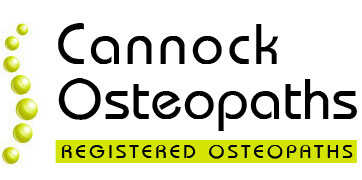Frozen shoulder
Frozen shoulder is a condition that leads to pain and stiffness of the shoulder joint. It is also known as adhesive capsulitis.
The symptoms tend to gradually get worse over a number of months, and if not treated can last years. Untreated you will typically experience shoulder pain for the first two to nine months, which can be severe, followed by increasing stiffness. The stiffness may affect your ability to carry out everyday activities and, in particularly severe cases, you may have very limited shoulder joint movement. The condition may improve with time, but this can sometimes take several years. Early diagnosis and appropriate treatment can significantly improve your rate of recovery.
What Are the Symptoms of Frozen Shoulder?
The symptoms of a frozen shoulder usually get worse gradually, over a number of weeks or months. Pain and persistent stiffness in the shoulder joint are the two main symptoms of a frozen shoulder. This makes it painful and difficult to carry out the full range of normal shoulder movements.
You may find it difficult to perform everyday tasks, such as:
- Bathing
- Dressing
- Driving
- Sleeping comfortably
Symptoms vary from mild, with little difference to daily activities, to severe, where it may not be possible to move your shoulder at all.
The 3 Stages of Frozen Shoulder
There are three separate stages to the condition, but sometimes these stages may be difficult to distinguish. The symptoms may also vary greatly from person to person.
Stage One
During stage one, often referred to as the “freezing” phase, your shoulder will start to ache and become very painful when reaching out for things. The pain is often worse at night and when you lie on the affected side.
Stage Two
Stage two is often known as the “frozen” phase. Your shoulder may become increasingly stiff, but the pain does not usually get worse and may even decrease. Your shoulder muscles may start to waste away slightly because they are not being used.
Stage Three
Stage three is the “thawing” phase. During this period, you will gradually regain movement in your shoulder. The earlier Osteopathic treatment can be started on a frozen shoulder will ultimately determine the speed of recovery.
What Causes Frozen Shoulder?
Frozen shoulder occurs when the flexible tissue that surrounds the shoulder joint, known as the capsule, becomes inflamed and thickened. It has a gradual onset which is not fully understood.
The following can increase your risk of developing a frozen shoulder:
- Previous shoulder injury or shoulder surgery
- Diabetes
- Dupuytren’s contracture (a condition where small lumps of thickened tissue form in the hands and fingers)
- Heart disease and Stroke
It is estimated that up to 1 in 20 people in the UK may be affected by frozen shoulder at some point in their life. Most people who get frozen shoulder are between the ages of 40 and 60. The condition is more common in women than men.
How Frozen Shoulder Is Treated
At Cannock Osteopaths we employ a pioneering treatment developed by one of the UK’s leading osteopaths. In a Randomised Placebo Controlled Trial conducted at Cambridge’s Addenbrookes Hospital, the Niel Asher Technique ( NAT ) was shown to produce a significant reduction in pain, together with considerable increases in strength and movement when compared to physiotherapy or a placebo. The evidence very strongly indicated that the technique we use is more effective than any of the conventional alternatives available.
Treating frozen shoulders is not a simple process. It is likely to take between 8 and 12 appointments to restore normal function, although we should be able to relieve your pain within 4 sessions. Occasionally, we may need to refer you for other investigations, as there are a number of conditions which can mimic the symptoms of frozen shoulder.
Peter Noon is our principal osteopath and our frozen shoulder specialist. He has trained under Simeon Niel Asher the osteopath who developed this very effective treatment regime for frozen shoulder.
You should make an appointment with Cannock Osteopaths if you think that you have a frozen shoulder, or if you have persistent shoulder pain that limits your movement. We will be able to diagnoses the cause of your pain and decide on the most appropriate treatment. Correct diagnosis is vital to determine the treatment given. Shoulders are vulnerable to a variety of conditions such as Subacromial Impingement, Tendinitis, Arthritis and Rotator Cuff tears with symptoms appearing similar in some instances. Our Osteopaths are all trained to diagnose your pain fully.






